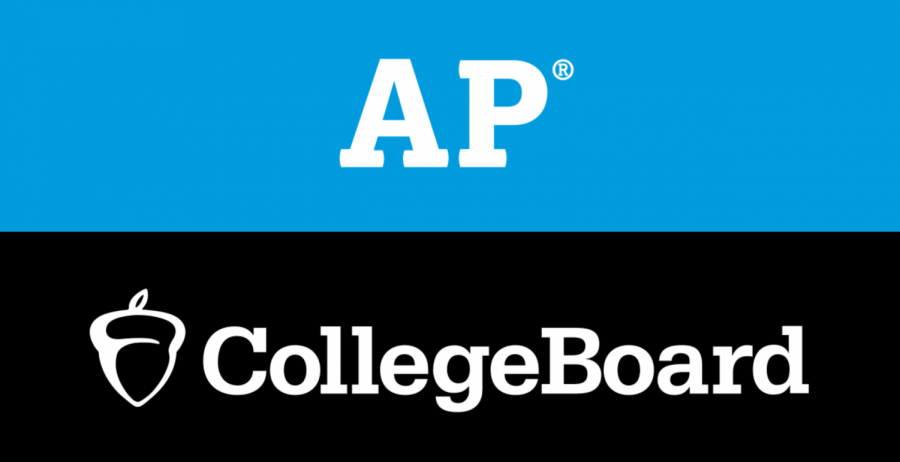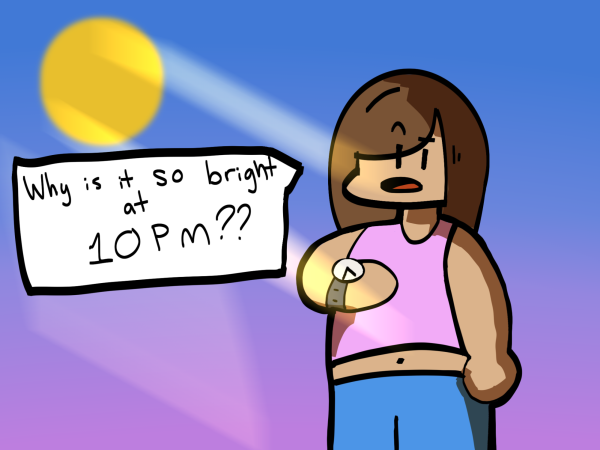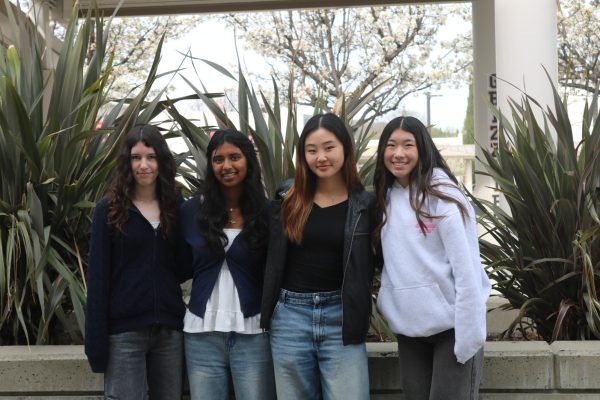AP test decision just another symptom of a larger U.S mentality
Many students taking AP tests this year have felt distraught after hearing that they will be taking the full AP tests after the many challenges a full school year of remote learning has brought.
The decision by the College Board to administer full-length AP tests is its most predictable move yet. It falls perfectly in line with the way Americans operate: learning to live with the problems in society rather than working to fix them.
The College Board knows that students are failing their classes at record rates; it’s no secret that the level of learning on a Zoom call cannot compete with in-person instruction. The “nonprofit” also knows that in addition to failing grades, more students are struggling with their mental health than ever before.
In the San Ramon Valley Unified School District alone, the number of high school students getting F’s jumped 124 percent last semester, compared to the first semester of the 2019-2020 school year. Students are having difficulties throughout the country, yet the decision was still made.
But why should we be surprised? This philosophy is nothing new. Despite its outward progressive appearance, the history of the United States is littered with a hatred of change, a quality that has become almost as American as apple pie.
Rather than accepting the 15th Amendment allowing Black men to vote, Jim Crow laws were embraced by the south, virtually reversing this right. The Amendment was bad for White men, so they created a way around it.
Later, after the 1964 Civil Rights Act was passed that — among other things — integrated schools, the Federal Housing Administration refused to insure mortgages in Black neighborhoods. Paired with the raising of housing prices in White neighborhoods, forms of segregation continued for years to come.
Today, rather than accepting the reality of climate change, lawmakers continue to take money from interest groups that profit off products and industries that pollute, and most everyday Americans continue their use of single-use plastics and participation in other toxic actions.
Across the state, Californians have come to expect an annual ‘fire season’ and weeks of smoky air. Even in what is considered one of the leading environmentally conscious states, people are learning to live with the problems caused by climate change.
On March 13, the SRVUSD Board of Education voted unanimously to cancel school for three weeks due to COVID-19. Most other school districts followed suit if they hadn’t already, and a statewide stay-at-home order was issued, beginning on March 17.
The entire country came to a grinding halt as fear of the virus spread. Families rushed to every store in town to stock up on toilet paper and flour, preparing for a few weeks stuck at home.
But then things didn’t go as planned. COVID-19 kept spreading, and people ran out of flour. The virus became an inconvenience, and people got annoyed with the constant uncertainty. So, many across the country threw on their masks and went pretty much about their old lives, except for online work and school. They watched as the national case numbers leapt from hundreds a day to thousands.
And though there were some who made an effort, many didn’t, and things only got worse. “Don’t go to Fourth of July parties,” we were warned. But people did, and cases spiked. “Don’t go to Christmas celebrations,” scientists pleaded. But people did, and cases spiked.
This stubbornness is ingrained in our society. One of the most popular arguments against almost any reform is just the apprehension of changing any traditions or practices. Our strict adherence to old policies sets us back decades when it comes to these major issues of climate change and racism, as well as others such as religious freedom and marriage equality.
For students — which is not to say the above issues do not apply to students — the AP test decision shows once again an American company’s refusal to adapt to wildly different circumstances.
The initial shock of the impacts of COVID-19 has worn off for many adults. Their brains are fully developed, and can be more patient and accepting than high schoolers. They are often in a more stable place in their life, and have the support they need. This could not be further from the truth for high school students, who have been consistently expected to perform their best this year, when that is just not possible.
The mental exhaustion students feel is incomparable to anything any of them have probably ever felt before. The hours on Zoom calls and lack of true interaction are isolating and suffocating, and the end of the tunnel seems to get further and further every day.
According to a study done by FAIR Health, the number of mental health claims for 13-18 year olds doubled in March and April of 2020 compared to the two months in 2019. In April alone, depressive disorder claim lines increased 83.9 percent.
The College Board cannot use the patterns we see in American history as inspiration for their decision. The majority of students are barely scraping by as it is, and full-length AP tests are not the answer.
Instead of the typical narrative of blaming students for not paying attention and/or not studying enough, the College Board must consider what students have to overcome mentally and emotionally on a daily basis, and reevaluate their AP test decision to reflect a model similar to what was administered last year.






